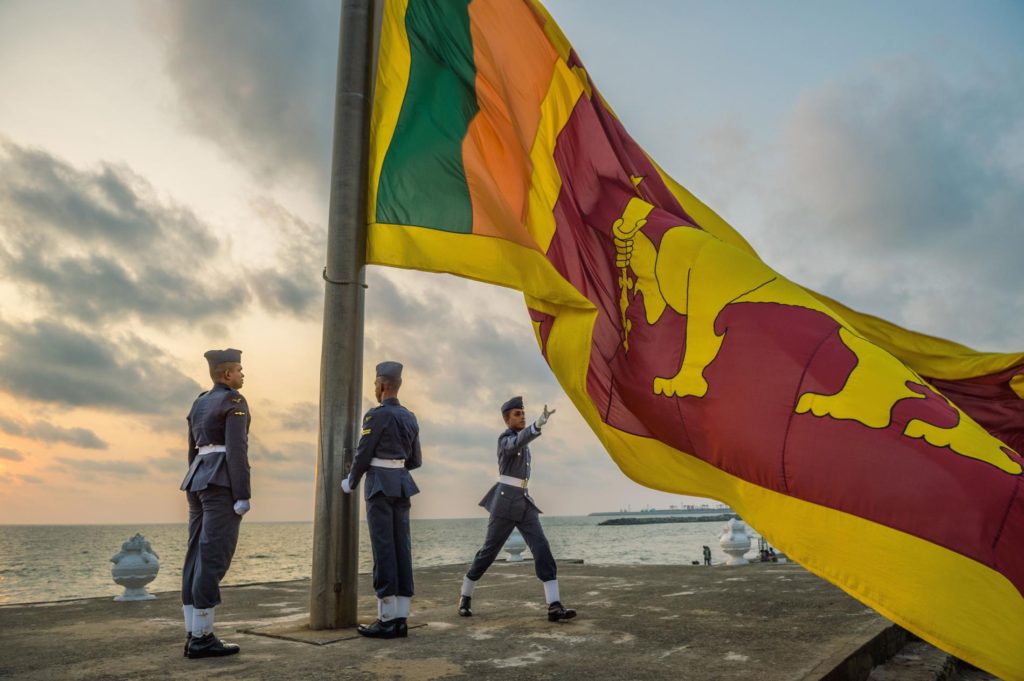Featured image courtesy National Geographic
February 4, 1948 is a date most schoolchildren learn by rote in history class; the day Sri Lanka declared independence from the British, ending a cycle of colonial rule dating back as long as 1505.
Every year, this day is marked with pageantry. For days, the roads close as rehearsals are held for the grand parade. But what does the day actually mean to citizens? More specifically, what does the term “independence” mean?
To find out, Groundviews interviewed people in Pettah, Kollupitiya and at Independence Square.
Translations of Sinhala and Tamil audio below:
00:10: During Dudley Senayake’s time, independence was good. Now, I don’t feel we have that kind of freedom. Where is that freedom for people? Even to eat or if we try to conduct a pavement business, the police think differently of people, hit them and chase them away.
00:42: For people to truly be independent, everyone has to live together without any conflict or differences.
00:55: Even though we won our independence in 1948, I don’t think there’s real freedom in this country. The politicians of this country, while living in the lap of luxury, are misleading the public, especially the downtrodden masses after stealing their labour.
1:11: Sri Lanka is a very independent country. We have progressed, and we are looking to make even more progress in the future.
2:03: There is freedom, isn’t it? Since people are living together in peace, there is freedom.
2:10: Where is there Independence today? I don’t think there is any such independence in Sri Lanka. We can’t improve our lives, it’s very hard to find money even to eat and drink.
The views expressed are by no means representative, but several interesting points did emerge. Upon initially being asked about February 4th, most would recall the day as a happy one, a cause for celebration. Asked what the word “independence” meant to them, however, and a number of different answers emerged.
Some of the people interviewed connected the grand terminology with their own day to day struggles. They felt they were not truly “free” or “independent”.
From the Bombay muttai seller who said, “I do this because I have no other choice” to the man chatting to a friend outside his local newspaper shop, who said “Even though we won our independence in 1948, I don’t think there’s real freedom in this country. The politicians of this country, while living in the lap of luxury, are misleading the public, especially the downtrodden masses, after stealing their labour,” there was a sense of real dissatisfaction.
Many of the pavement vendors in Pettah said they now had more freedom compared with the Rajapakse regime, as they were often sent into remand “as if we were drug dealers” simply for trying to earn a living. (Defence Secretary Gotabaya Rajapaksa embarked on a campaign to create a “slum-free Colombo by 2020”which led to many of the pavement vendors being shunted from their spaces that they had held for years). However while rejoicing at their freedom to operate, many also noted that the cost of living was high. As one vendor commented, “People are still facing difficulty. These are problems that the Government must resolve. Those of us who live without any real expectations from the government only ask that they act in a way that benefits everyday folk.”
Many people recalled the war, and expressed happiness that the conflict was over. “When we were children, we loved to see the armoured cars. Then the war came, and we hated to see them,” as one passerby commented. They expressed thanks to the former regime for ending the war. “The former President, Prime Minister, and Military Commanders, saved this country from peril. It’s inevitable that a country thus freed (from war) will go through political change” one person said.
There were those for whom independence was a simple expression of patriotism. “I remember that we became free on this day, so I am happy,” a man selling Sri Lankan flags in the run up to the celebrations said. “We are all living in peace now. So yes, there is freedom,” another said. “Sri Lanka is an independent country. We are progressing after this victory, and hope to progress even more in future” one interviewee said.
However in the main there was a deep, pervading sense of dissatisfaction that in the end outweighed the expressions of solidarity. There were even those who said they would have preferred that colonial powers continued to rule Sri Lanka (tellingly, many of them did not want their voices recorded). Others went on to add that they felt the minority voices were being given undue recognition. “We are Sri Lankan. We love our country and we love our religion, which is Buddhism. But now Muslims are being given undue prominence. And they are increasing in numbers” one interviewee said forcefully.
Despite the annual celebration, it is clear that not all Sri Lankans feel free today. Many of the people Groundviews interviewed were shackled by new, immediate worries – about feeding their families, about their existing culture and way of life being somehow, threatened, about the corruption of politicians and the inequality between rich and poor. In this light, ask the question: who are the parades really for?
If you enjoyed this post you might also find “Common Ground: a series of photo essays” and “Deconstructing Independence Day discourse 2015: A response to Dayan Jayatilleka” enlightening reads.
